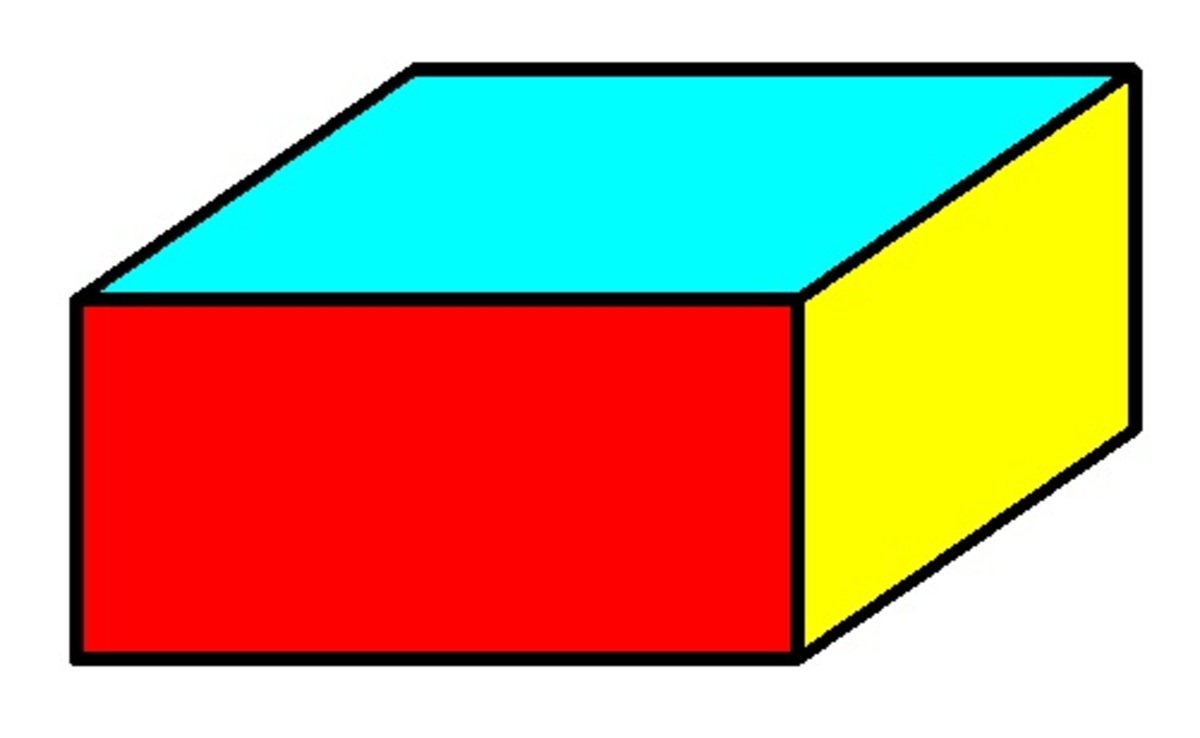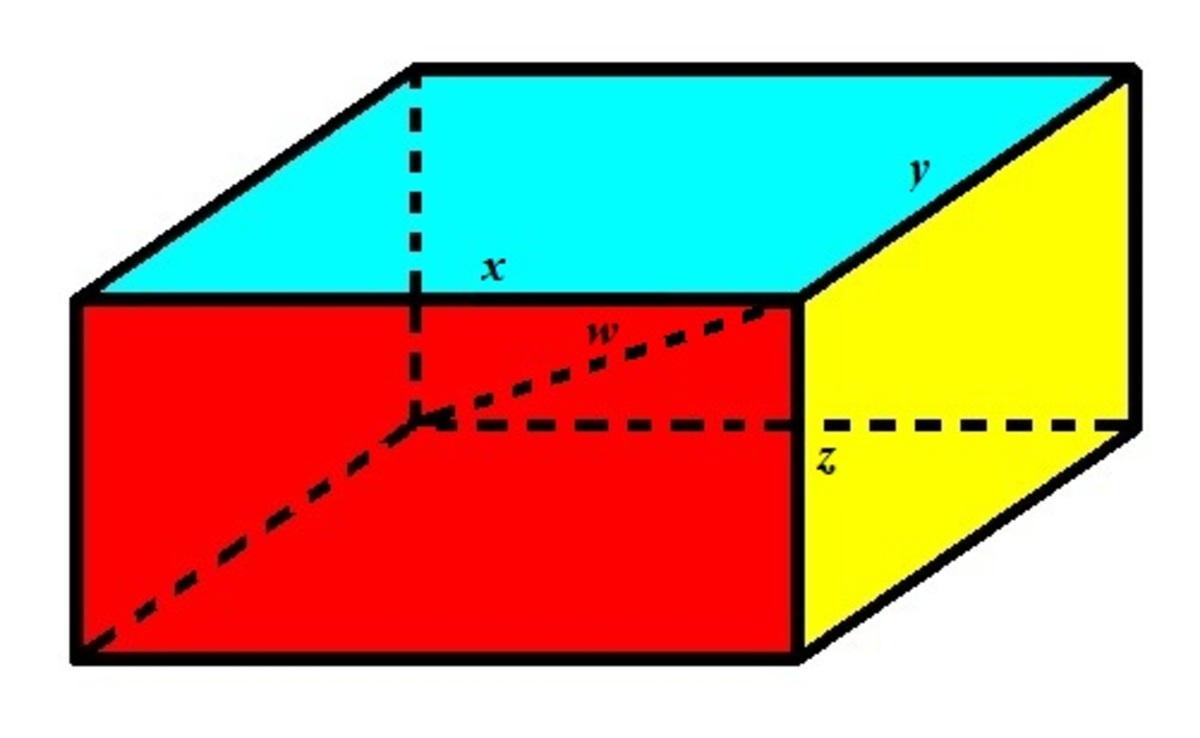Space diagonal
 The figure shown above is a cuboid. The area of the red part is
8
, the yellow part is
6
, and the blue part is
1
2
. Find the length of the space diagonal of the cuboid. If your answer can be expressed as
a
, where
a
is a positive integer, give your answer as
a
.
The figure shown above is a cuboid. The area of the red part is
8
, the yellow part is
6
, and the blue part is
1
2
. Find the length of the space diagonal of the cuboid. If your answer can be expressed as
a
, where
a
is a positive integer, give your answer as
a
.
The answer is 29.
This section requires Javascript.
You are seeing this because something didn't load right. We suggest you, (a) try
refreshing the page, (b) enabling javascript if it is disabled on your browser and,
finally, (c)
loading the
non-javascript version of this page
. We're sorry about the hassle.
2 solutions
 Let the lengths of the width, depth and height of the cuboid and the space diagonal be
x
,
y
,
z
and
w
as shown in the figure above. Then we have:
Let the lengths of the width, depth and height of the cuboid and the space diagonal be
x
,
y
,
z
and
w
as shown in the figure above. Then we have:
⎩ ⎪ ⎨ ⎪ ⎧ z x = 8 y z = 6 x y = 1 2 . . . ( 1 ) . . . ( 2 ) . . . ( 3 )
( 1 ) ( 2 ) : x y z 2 1 2 z 2 ⟹ z = 8 × 6 = 4 8 = 2 , x = 4 , y = 3 ( 3 ) : x y = 1 2
By Pythagorean theorem , the space diagonal w 2 = x 2 + y 2 + z 2 = 4 2 + 3 2 + 2 2 = 2 9 ⟹ w = 2 9 ⟹ a = 2 9 .
let L , H and W be the length, height and width of the cuboid, respectively
Then,
L H = 8 ⟹ L = H 8 ( 1 )
W L = 1 2 ⟹ L = W 1 2 ( 2 )
W H = 6 ( 3 )
Since L = L we have
H 8 = W 1 2 ⟹ W = 1 . 5 H ( 4 )
Substitute ( 4 ) in ( 3 ) . We have
1 . 5 H ( H ) = 6 ⟹ H 2 = 4 ⟹ H = 2
It follows that, L = 2 8 = 4 and W = 2 6 = 3
So the diagonal of the base is 5 (from 3 − 4 − 5 special right triangle).
Finally, by pythagorean theorem , the length of the space diagonal, d , is
d = 5 2 + 2 2 = 2 5 + 4 = 2 9
So the answer to the problem is 2 9 .